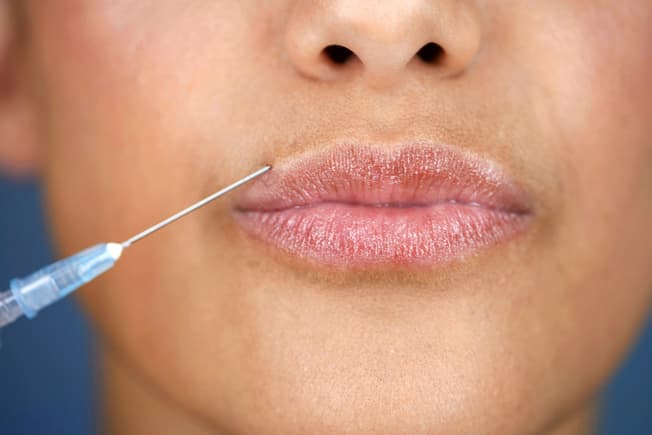An infection that has a warm sensation on the touch
Inflammation can also cause hyperpigmentation, or darkening of the skin. This can occur with any skin type, although it is particularly common in people of color.
Rare Adverse Reactions
Blindness and dead tissue are not common occurrences. Fillers clog arteries in both cases, preventing blood from flowing. You will require immediate assistance from a dermatologist or other medical specialist for both situations.
Facial fillers can add volume to your face, but they cannot improve the quality of your skin. If you have severe acne scars, etched-in lines, dark spots, or other skin concerns, consult your dermatologist about treatment options.
What is the price?
Depending on your treatment area, you’ll need one or two syringes. The current average cost per syringe for a one-year filler is $650, and $900 for a two-year filler. Because most fillers are considered cosmetic, they are not covered by health insurance. If you are quoted a price that appears to be too good to be true, the filler may have come from an unlawful source.
Thinners of the blood
Inform your doctor about any medications, including supplements, that you are taking. Anything that thins your blood, such as prescription medicines, aspirin, or ibuprofen, can prolong the duration of bruises. Most doctors recommend discontinuing blood thinners two weeks before an injection.
Wear No Makeup
Make sure your face is clean when you arrive for your visit to reduce your chance of infection. Before your injection, your doctor will clean it again. It’s possible that you’ll have to wait an hour or two following the surgery to put on makeup. When you do, make sure to use clean brushes and new cosmetics.
